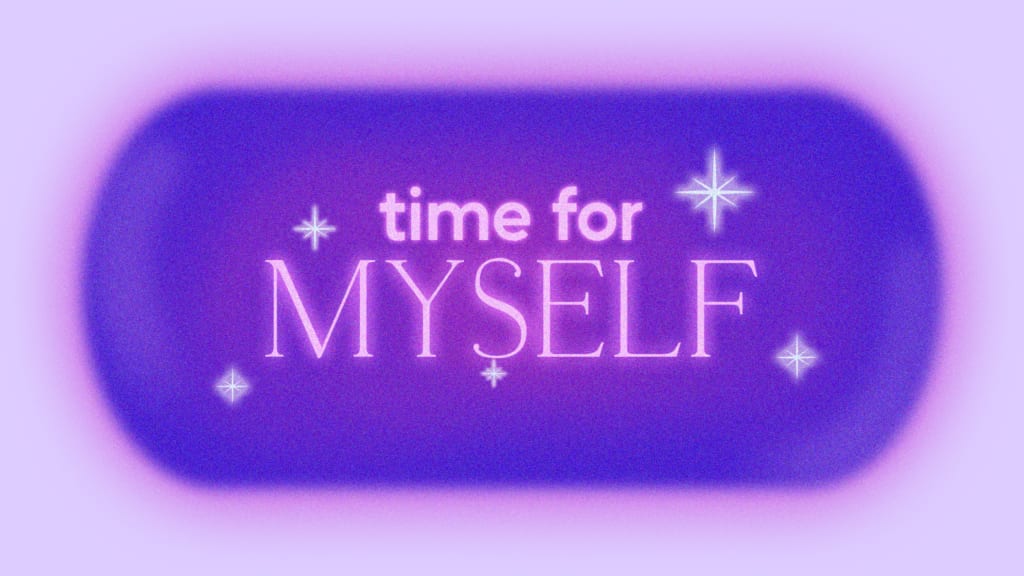Why is individualism so appealing to young women?
Some reasons why self-help and self-reliance seem so fascinating for young women and femmes.

Individualism is a capitalistic concept, as well as an extremely unlikely and sometimes toxic mindset. In a way or another, none of us is "self-made" as we always end up somehow needing other people in order to survive, no matter the reason. Being individualistic might therefore lead us to develop unhealthy selfishness and reluctance to ask for help, which leads to issues related to physical and mental health as well as other contexts.
However, for many young women, including feminist and leftist women, individualism is still quite appealing, despite the fact that many of its premises are inherently anti-feminist. Let's have a deep dive into the reasons behind this fascination.
A refreshing narrative
Women and people who have been socialized as women grow up in patriarchal societies. Those who were raised by more progressive and privileged families might not have felt this a lot, but those who were born into more traditional and conservative families were often bombarded by stereotyped examples and words directed either at us directly or at other women and femmes. Such stereotypes, which have already been ingrained in the collective conscience of our family members, end up lingering within us, sometimes undermining our sense of self and our self-worth. Who might even think about a career if you're constantly being brainwashed about motherhood and a (heterosexual) marriage where your husband is the sole provider?
Sometimes, when I talk to my relatives, even the younger and self-proclaimed "progressive" ones, I get the impression that, no matter how much of an effort they make, they will only be able to see me as a wife and a mother.
I am sure that some femmes will relate to this thought as well. In such a situation, individualism seems like the only option to escape this trapping scenario. You are provided with an image of you existing without being attached to a man or a child, or both, for the first time, and it's hard not to find it appealing.
The impact of COVID-19
When the pandemic broke down at the beginning of 2020, many countries opted for a complete lockdown in order to limit contagion, thus forbidding most of in-presence human interactions.
This forced a lot of people to rethink a huge chunk of their social life and, more broadly, several aspects of their everyday life that they took for granted before. For example, it prompted social large-scale phenomena such as the great resignation and quiet-quitting as well as simpler realization, like the preference for working remote or in the office.
However, these are not the realizations that led me to include Covid among the reasons why individualism sounds so appealing, but rather a personal experience. During the months before the lockdown in Italy, I was not in a good place mentally. I was riddled with FOMO, and I was worrying about not being able to have a rich social life in a concerning amount, mainly because of my commuter status and my schedule. Add this to a bit of imposter syndrome for not having a paid, stable job, guilt for not being able to pay my own tuition (which is very common in Italy) and for choosing what I deemed to be the "wrong" internship for university. The result is a person on the verge of a mental breakdown who even resorted to phytotherapy because she could not even sleep properly.
When lockdown came, it felt liberating at first. I finally had a solid, concrete base to reject those narratives I had created about me. Yes, I did not have the creativity to look for an internship abroad, or an internship at a big company, but I had completed my internship just in time, thus gaining the credits I needed for university without having to find a solution in such a trying time. Yes, I did not have a job or financial independence, but in such an unusual situation, everyone had too many other things to worry about to think about whether I could provide for myself or not.
In short, isolating for a while really helped me recalibrate my priorities and shifting them to myself and myself only. During this time, my FOMO practically vanished, and I discovered the world of online courses, self-reflected on a huge chunk of my life and mindset about a bunch of different things.
While I managed to keep most of my relationships afloat during the pandemic, I also developed an illusion of self-sustainability that was quickly crushed when I started my Master's degree. Being in a larger, chronically disorganized university really reminded me that having an informal support system is crucial in such chronically disorganized environments. However, I'm still miles away from the anxious person I was before the pandemic, and I have pretty much reached a healthier balance between community and individualism.
Now, this was a fortunate coincidence for me, and I am fully aware that not many people were in the same fortunate situation. However, I think that being forced to rethink our routines, habits, and social life and having to spend more time in our own company made many people lean more towards more or less healthy forms of individualism.
The will to heal
As I said previously, not everyone came out of the pandemic well. Cases of mental health issues and burnout have increased and are not stopping anytime soon.
Yet the amount of people that actually reached out to a therapist is much lower due to a variety of reasons, ranging from financial issues to a stigma about mental health in their community.
While these are all valid and understandable reason, this inaccessibility has led many people to lean towards self-help content. Sure, some self-help creators have genuinely good intentions and share their experience, but it is not enough. If you need further proof, consider that, in some countries, therapists have to regularly see a therapist themselves in order to be allowed to work.
If we dive deeper into the more sinister side of self-help content, however, we will find a lot more issues than the idea that we can always save ourselves regardless of our circumstances. One of the most harmful sides of this type of content is when self-help merges with time management, leading to harmful beliefs encrusted with tone-deafness and privilege such as "you have the same 24 hours as Beyoncé". People claiming this often have either a lot of free time for whatever reason, or have enough wealth to delegate their most boring tasks to other people, either by hiring more staff at their department or company or by hiring people such as babysitters, nannies or housekeepers in their private life.
People who rely on this type of content, however, are not aware of the immense privilege of the authors of said content. Most of the time, they do not have the same amount of money or time available, but they get persuaded that they do, so when they realize they have been sold a lie and cannot juggle all the stuff mentioned in the content they consumed, they do not blame said content, but themselves, which is a terrible situation to be in. In a nutshell, you are pretty much tricked into thinking you are not doing enough with what you have in terms of time and resources, and you might not be able to see that it was not your fault.
Despite these concerning aspects, it is not hard to see how wanting to heal or recover from whatever emotional or mental issue but not being able to see a therapist or a counselor could lead people towards consuming self-help content, which is directly linked to individualism as it is focused entirely on the idea of not relying on anyone to somehow grow.
Is community always an anticapitalistic concept?
Anticapitalism and leftism have always been centered around the idea of community, mutual aid and mutual care. While I support these concepts and wish for their implementation in any area of our life, I can also imagine why some people might be suspicious about certain parts of these concepts.
For example, it is completely fair to advocate for care and aid in relationships, regardless of their nature. However, someone might ask "where is the line between being used and implementing care in my life?". If a person has been wounded in a similar way in the past, they will obviously be more reluctant to implement the ideal of community in their life and more prone to individualism.
Think about it: how many times have we heard or experienced someone abusing the concept of mutual aid in specific contexts, such as school, or work, or even within our families? Personally, I've seen this a lot, and this still leads me to question the value of community at times, because I've rarely experienced a community in an anticapitalistic sense, but I have more often experienced community at the expense of someone else, sometimes at my own expense. To be completely honest, I still struggle to distinguish between "genuine" community spirit and community at the expense of someone else myself.
Add gender to the mixture, and you will end up with a plethora of young women and femmes that might mix up extreme individualism with liberation, since they have been socialized to tend to their partners while trying to cultivate their ambitions outside of their "wife" persona without expecting their partners to juggle this amount of activities.
Sometimes, these negative experiences often breed not only individualism, but also trust issues, emotional inavailability, and other avoidant tendencies that might seem like an effective solution, but such systems do not work well in the long run. We are social beings, we need people to survive at some point or another.
Regardless of this, I still think it is worth spending a moment to understand where individualistic people come from and why this attitude is so appealing to women and femmes. By understanding what leads to such a mindset, we can see where it falls short and, as a result, how to show up when we're needed the most. Just like a community, right?
About the Creator
Simona Rosso
She/her. I write about pop culture, and I love dissecting every single medium I come across.






Comments
There are no comments for this story
Be the first to respond and start the conversation.